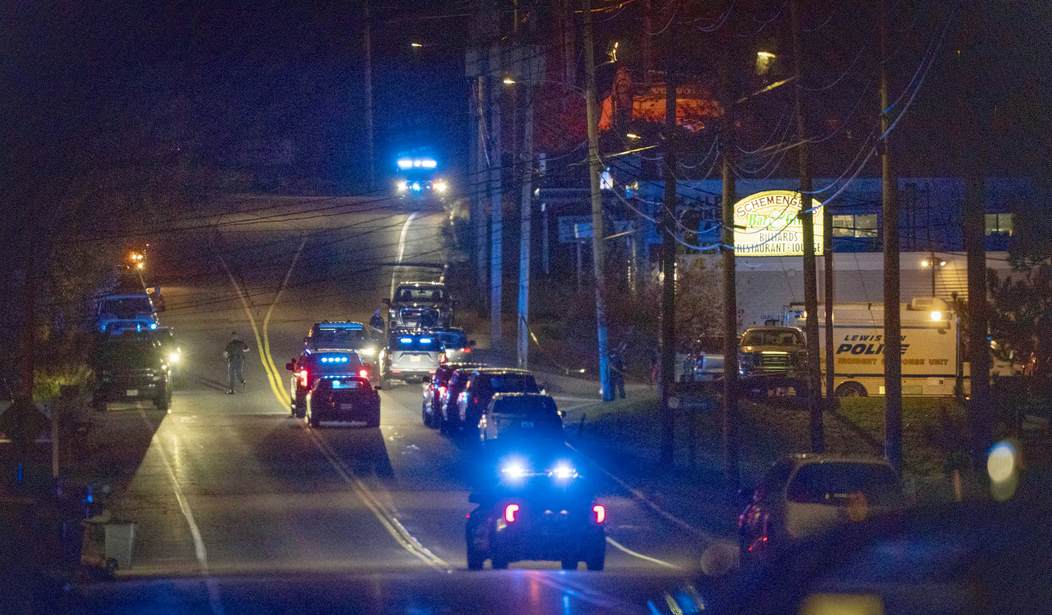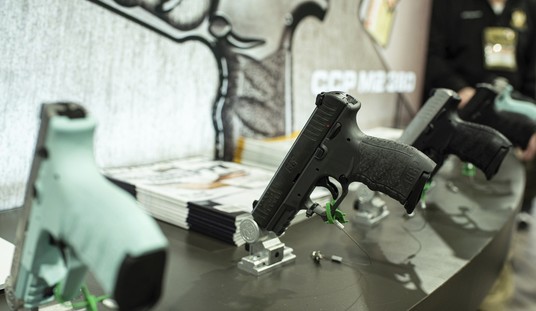A bombshell report by the Boston Globe offers confirmation that the man who shot and killed 18 people and wounded 13 others in Lewiston, Maine last week was involuntarily committed to an Army hospital earlier this summer, raising questions about why he had not been reported to the NICS system as a prohibited person.
As the Globe reports:
After that commitment, the Army told Card’s commander that he should not have a weapon, handle ammunition, or participate in live-fire activity while on duty. However, that order does not appear to have had any effect on Card’s ability to purchase or use guns as a civilian.
In fact, the only reason Card was blocked frombuying a suppressor — a device that silences the sound of gunfire, making it far deadlier — a month after his hospitalization is because Card self-reported the incident on a form required for the purchase.
Had Card not been truthful, there was nothing to stop him from picking up the device at a local gun store. Under federal statute, involuntary commitment should have made Card ineligible to purchase or possess guns.
The oversight is just one of many shocking revelations that have come to light in the six days since Card open fired on a bowling alley and bar in Lewiston, sparking criticisms about what authorities could have done to prevent it.
Among the other disclosures: A warning from a reservist in September that Card was “going to snap and commit a mass shooting.” The local sheriff’s department’s failure to make contact with Card during two wellness checks. And that department’s agreement to let Card’s family lock away weapons, rather than having law enforcement officials intervene.
“They missed the boat. It’s as simple as that,” said Leroy Walker Sr., an Auburn city councilor whose son Joseph, the manager of Schemengees Bar & Grille in Lewiston, was killed in the shootings. “They all dropped the ball.”
While politicians and anti-gun groups have used the murders to call for more gun control laws at both the state and federal level, as more details emerge it’s become clear that the shooting could have been prevented; not by passing more restrictions on the right to keep and bear arms, but simply by following existing laws.
According to the Globe, the killer’s ex-wife and son had reported to police as early as May that he was growing increasingly paranoid and delusional, and had picked up around a dozen firearms that he had stored at his brother’s home. When the murderer exhibited “erratic” behavior during an Army Reserve training exercise in New York in July, the State Police were called to transport him to a local hospital, where he was involuntarily committed and spent two weeks receiving treatment. That should have resulted in his disqualification to own or purchase firearms, but the FBI has said that he wasn’t listed as a prohibited person in the NICS database.
To make matters even worse, the Globe reports that multiple local law enforcement officials witnessed his deteriorating mental condition firsthand.
At least four law enforcement agents — including the sheriff of the county that neighbors Lewiston — served alongside Card in the Third Battalion of the 304th Infantry Regiment during this year of tumult, witnessing him grow increasingly paranoid and contemplate violence, according to police reports.
Christopher Wainwright, the sheriff who oversees Oxford County, and Matthew Noyes, an Androscoggin County deputy, were in the car with Card that July night when he spiraled with paranoia, accusing the men of calling him a pedophile. Over and over, he told the two police officers — and fellow reservists — that he would “take care of it.” The “it” was never clarified, but Card’s mania persisted through the night. His commander Jeremy Reamer — also a police officer, with the Nashua Police Department — alerted police.
Based on the Globe report, it sure looks like the Army failed to notify federal authorities of the killer’s involuntary commitment, which would be a major failing on the part of the military akin to the Air Force’s failure to communicate an assault conviction by the killer in Sutherland Springs, Texas in 2017; a misstep that resulted in a judge ordering the Air Force to pay $230 million to the victims and their families last year.
As the Globe notes, even if the killer had been reported to NICS that wouldn’t have automatically prompted law enforcement to remove any currently-owned firearms from his possession. But even after he had been released from his involuntary commitment in New York the killer displayed increasingly disturbing behavior in Maine, and apparently no steps were taken to commit him to a mental health facility closer to home or to use the state’s “yellow flag” law to temporarily bar him from lawfully possessing any firearms.
There were multiple opportunities to ensure that the killer wouldn’t pose a threat to himself or others, but those steps were never taken. As one Lewiston resident told the Globe, “I feel like the system failed him in a lot of ways, and everybody involved.” That appears to be the case, and no additional gun control law could ever make up for the mistakes that were made in the months before he carried out his attack.








Join the conversation as a VIP Member